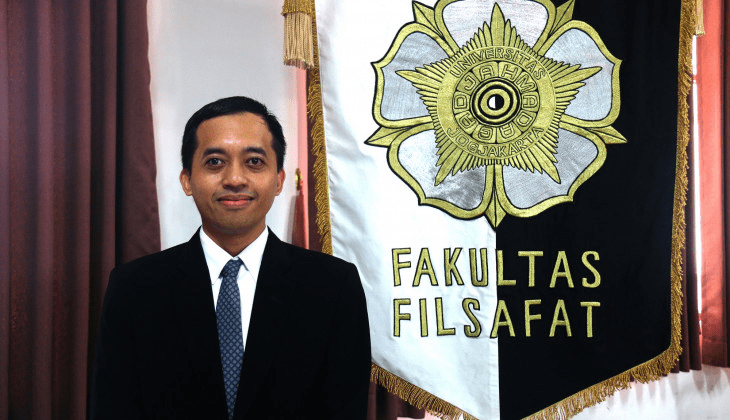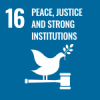
The term “four pillars of national and state life” used by the People’s Consultative Assembly of the Republic of Indonesia (MPR RI) is said to be confusing because in terms of the language structure and logic Pancasila, 1945 Constitution of the Republic of Indonesia (UUD 1945), the Unitary State of the Republic of Indonesia (Negara Kesatuan Republik Indonesia; NKRI) and Bhinneka Tunggal Ika (Trans: Unity in Diversity) have different positions and functions so these four things cannot be aligned. Apart from being semantically problematic, the use of the term “four pillars” as a political language for the name of the training program is suspected to have caused debate in the community and obscured the true meaning of the language and symbols of the meaning and essence of Pancasila, the 1945 Constitution, NKRI and Bhinneka Tunggal Ika. This was stated by doctoral student of the Faculty of Philosophy UGM Hastangka, S. Fil., M.Phil., during his presentation of his dissertation research on the open examination at the Faculty of Philosophy UGM on Thursday (24/1).
In his dissertation entitled “The Four Pillars of National and State Life from the Perspective of the Philosophy of Language and Theoretical Implications of the Understanding of Pancasila”, Hastangka said that MPR RI chose the term “four pillars of national and state life” in order to reintroduce Pancasila, UUD 1945, NKRI and Bhineka Tunggal Ika. However, the relationship structure established by the MPR RI, according to Hastangka, cannot be accounted for in the context of historical, juridical and philosophical relations.
“The term four pillars has confused and delegitimized the relationship between the essence and meaning of the terms Pancasila, the 1945 Constitution, the Republic of Indonesia and Unity in Diversity in the life of the nation and the state,” he said.
He added, the use of the term “four pillars” considering the structure and logic of language has categorical and logical errors that cause confusion and misunderstanding by changing and deviating the meanings.
“The politicization of language has caused issues on the legitimacy of the meaning of language which is potentially misleading,” he said.
The failure of the political elites to formulate language in the process of creating reality, meaning and symbols will result in failure in defining and understanding the meaning of language itself.
He concluded that the current problem of political elites is that they tend to be inconsistent in using and interpreting language without considering the philosophical basis of the language. This potentially would mislead people’s understanding of the meaning and philosophy of the country.
The four pillars of nation and state were used by the MPR RI for the training program in the era of Taufiq Kiemas’ leadership as Chairman of the MPR RI for the 2009-2014 period. Furthermore, this term is legitimized through statutory regulations, namely Law No. 2 of 2011. Until now, training on the four pillars of nationality is still being implemented by the MPR RI.



